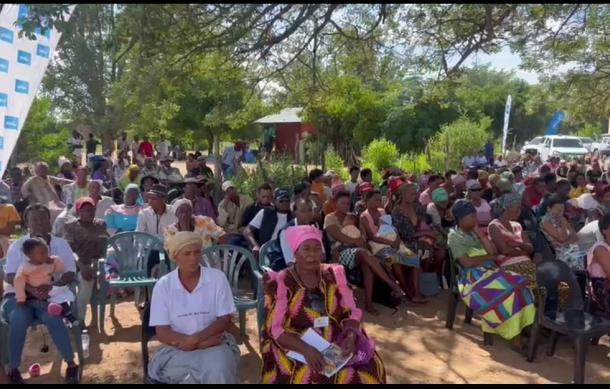
The war in Ukraine has led to escalating food and commodity prices, affecting access to food by vulnerable communities in Namibia. The country's economy is highly dependent on food imports, with over 60% of Namibia's food imported annually; hence, combined with the effects of COVID-19 and climate-induced shock, the country is facing an eminent food crisis, especially with vulnerable communities.
To this effect, the World Food Programme (WFP), in collaboration with the government of Japan, launched a Food Voucher Program at Tsintsabis in the Oshikoto Region.
Japan's contribution will support more than 21,000 people in the three regions of Omaheke, Kunene, and Oshikoto. These include 3,700 malnourished children under the age of five.
Each family will receive a food value voucher equivalent to US$47 in local currency (approximately N$850) per month for three cycles by March 31, 2023.
As the Deputy Country Director for the World Food Programme in Namibia, Ericah Shafudah applauded the Japanese government for the food value vouchers, which she says will provide a safety net during the current food price crisis.
"The vouchers have lowered the purchasing power for communities highly susceptible to malnutrition and food insecurity," said Shafudah, adding that "with such interventions, targeted beneficiaries are set to improve the vulnerable communities' nutritional and dietary intake, thus curbing against a potential relapse to food insecurity."
Oshikoto's regional governor, Penda Ya Ndakolo, who officially launched the program, implored the beneficiaries not to sell their food items for any other means as it is meant to alleviate hunger.
"Agriculture is one of the key sectors in the region; most of the households engage in communal and commercial farming; therefore, I urge all stakeholders in agriculture to work together in creating a favorable environment for agricultural activities, especially here in the Tsintsabis settlement," he noted.
The Japanese Ambassador to Namibia, Hisao Nishimaki, Omaheke Regional Governor Pijoo Nganate, and various regional councilors and dignitaries from all three beneficiary regions were in attendance.





